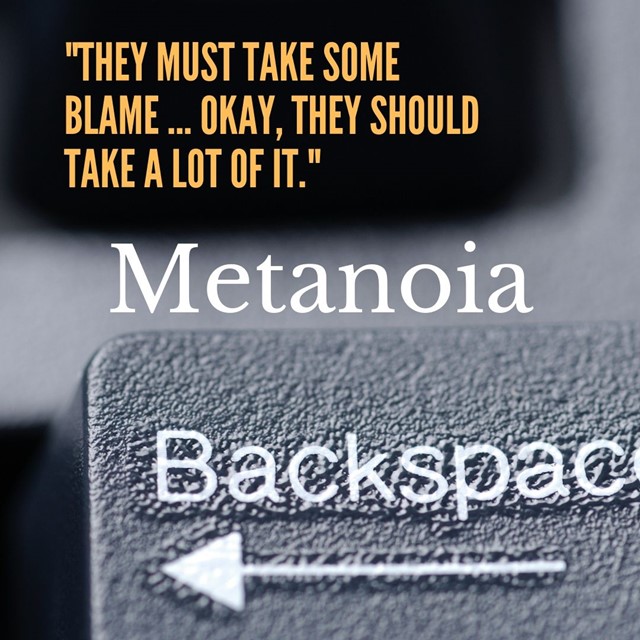
Even when we’re not aware of it, we’re using many of the same rhetorical techniques Aristotle, Cicero, Abraham Lincoln, Frederick Douglass, Winston Churchill, Martin Luther King, Jr. and other greats have employed in public speaking. Each month, our Buckley School resident students of classical rhetoric explain a rhetorical device that can improve your public speaking.
"Spontaneity is a meticulously prepared art."
– Oscar Wilde
BY JENNY MAXWELL AND JANA DALEY
While most important speeches and presentations are prepared and rehearsed, audiences still long for spontaneity from their speakers. Too smooth, too prepared—and they say the speaker doesn’t seem real or "authentic."
If that’s your concern when you speak from notes, the rhetorical device metanoia might be worth a look.
What is metanoia?
It’s the seemingly spontaneous mid-thought correction you hear speakers make, giving the impression that they are searching for the most accurate expression.
And like paralipsis, it can also allow a speaker to say something harsh without having to totally own up to his harshness.
Consider this excerpt from a speech by former British Prime Minister David Cameron:
"Let’s start by being honest with ourselves. The mess this country is in – it’s not all because of Labour. Of course, they must take some of the blame. All right – they need to take a lot of the blame. Let me just get this off my chest … "
In Farnsworth's Classical English Rhetoric, Ward Farnsworth outlines a number of ways to use the device for persuasive purposes, including:
- To make a point more strongly: "I believe—nay I know—that in general our officers and soldier are humane."
- To state the opposite: "Would anything with such a principle in it, or rather with such a destitution of all principle, be fit to be called a government?"
- Correction in advance in order to pretend you are not about to say what you in fact are about to say: "You are—deluded I was going to say, but I could not make a greater blunder, for deluded you are not."
Pronounced met-uh-NOY-ah, the word comes from the Greek word for changing one’s mind. The technique is also known as correctio (which sounds to us like something Harry Potter would yell why flourishing a wand).
 If you'd like to spontaneously grab a wand and yell "correctio" in the privacy of your office, we won't tell. That is not, however, the same thing as using correctio in a speech.
If you'd like to spontaneously grab a wand and yell "correctio" in the privacy of your office, we won't tell. That is not, however, the same thing as using correctio in a speech.
Evaluating its persuasive value, Farnsworth deems the power is mild. As with any rhetorical device, it can elevate the speaker or undermine him, depending on the skill of its user. Farnsworth says:
"Metanoia can create an impression of scrupulousness, as the speaker starts to say one thing but then feels obliged to take the initiative in correcting it. (It also can suggest overscrupulousness, as when the speaker fusses too much.)"
Read more about how it's used in political speech to create an air of spontaneity here.
Find an excerpt from Farnsworth’s chapter on metanoia here.






